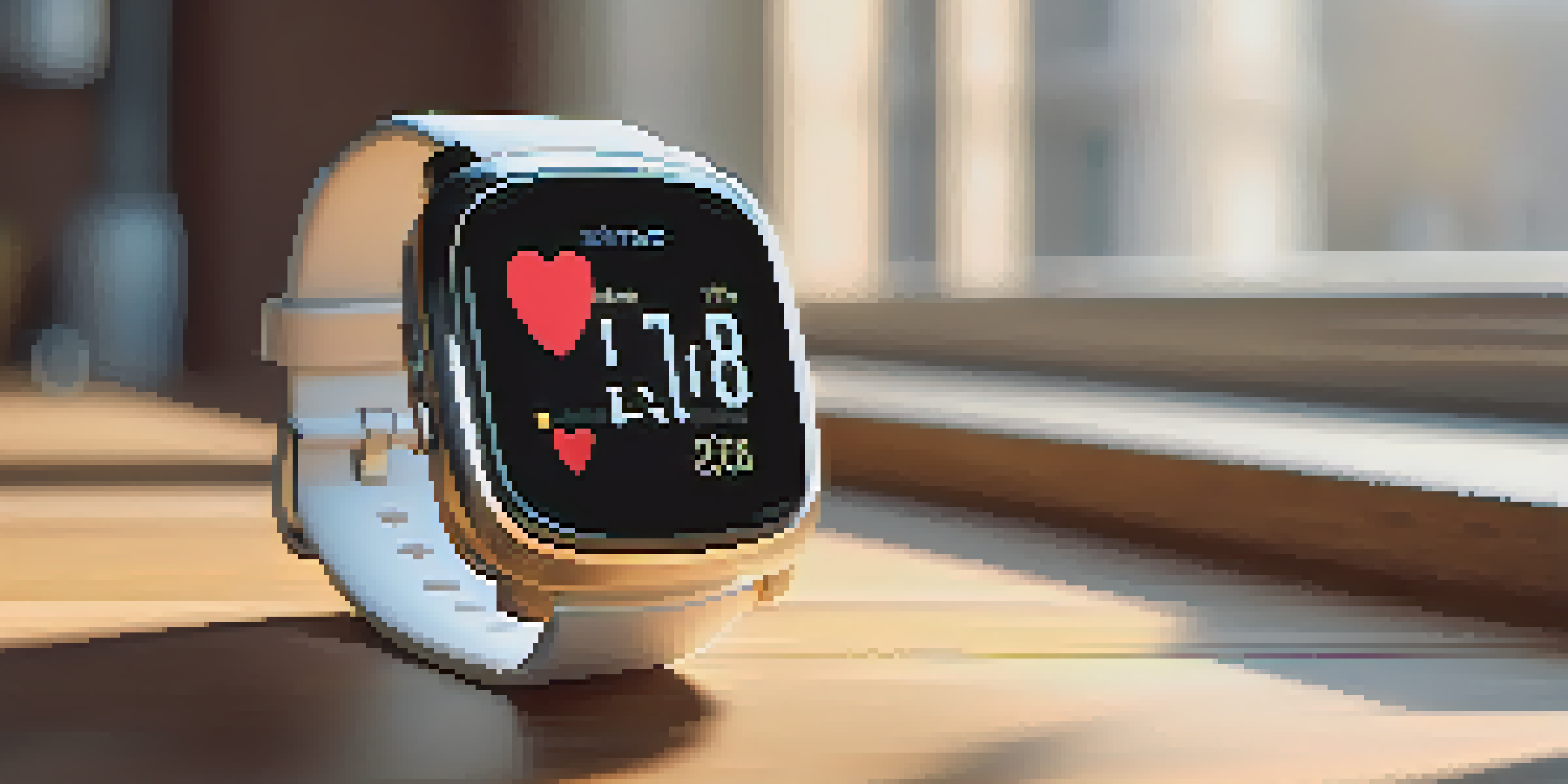Using Technology to Combat the Obesity Epidemic

Understanding the Obesity Epidemic and Its Challenges
The obesity epidemic is a growing concern that affects millions worldwide, leading to severe health issues and increased healthcare costs. Factors such as poor diet, lack of physical activity, and genetic predisposition contribute to this crisis. Understanding these challenges is the first step in tackling obesity effectively, and technology can play a pivotal role in addressing these factors.
Obesity is a complex disease, and it is not simply a matter of willpower. It requires a comprehensive approach to treatment and prevention.
In today's fast-paced world, convenience often trumps health, with processed foods and sedentary lifestyles becoming the norm. This shift has made it increasingly difficult for individuals to maintain a healthy weight. However, technology offers innovative solutions to combat these challenges, making it easier for people to make healthier choices.
From wearable fitness trackers to mobile apps that promote healthy eating, technology provides tools to monitor and encourage healthy habits. By leveraging these resources, individuals can gain insight into their behaviors and make informed decisions to improve their health.
Wearable Technology: Tracking Fitness and Health
Wearable technology, like fitness trackers and smartwatches, has revolutionized how we approach fitness and health. These devices allow users to monitor their physical activity, heart rate, and even sleep patterns, providing valuable data that can help them stay on track with their health goals. With features like step counting and calorie tracking, wearables make it easy to set and achieve fitness targets.

Moreover, many of these devices come with companion apps that offer personalized insights and motivation. For instance, if you reach your daily step goal, your device might reward you with a virtual trophy, encouraging you to keep moving. This gamification of fitness not only makes exercising more enjoyable but also fosters a sense of community among users.
Tech Aids in Obesity Management
Technology, including wearable devices and mobile apps, plays a crucial role in helping individuals track their health and make informed choices.
As wearables become more advanced, they are integrating with other health data, such as dietary habits and medical history. This holistic approach enables users to gain a comprehensive understanding of their health, ultimately helping them make informed choices that combat obesity.
Mobile Apps: Encouraging Healthy Eating Habits
Mobile apps have become a popular tool for promoting healthy eating habits, offering users a convenient way to track their food intake and make healthier choices. Many apps allow users to log their meals, monitor their calorie consumption, and even receive personalized meal suggestions based on their dietary preferences. This technology empowers individuals to take charge of their nutrition and make informed decisions.
The future of health lies in technology. We can leverage data and innovation to create personalized health solutions that empower individuals.
Some apps also incorporate features like barcode scanning, enabling users to quickly access nutritional information about the foods they consume. This transparency helps users understand what's in their food and encourages them to choose healthier options. Additionally, many of these apps foster a sense of community by allowing users to share recipes, tips, and success stories.
By leveraging technology, mobile apps can help individuals develop a healthier relationship with food. With the right tools and support, people can learn to make better dietary choices, ultimately contributing to the fight against obesity.
Online Communities: Support and Motivation
Online communities have emerged as vital support systems for individuals seeking to combat obesity. Platforms like social media, forums, and dedicated health websites allow users to connect with others who share similar goals and challenges. This sense of belonging can provide motivation and encouragement, which is essential in maintaining a healthy lifestyle.
In these communities, members often share their journeys, successes, and setbacks, fostering a culture of empathy and support. For example, someone might post about their struggles with weight loss, and others can chime in with advice or share their own experiences. This exchange of knowledge and encouragement can be incredibly empowering.
Online Communities Provide Support
Online platforms foster a sense of belonging and motivation, enabling individuals to share experiences and receive encouragement in their weight loss journeys.
Moreover, many online platforms offer access to professionals, such as dietitians and fitness trainers, who can provide expert guidance. By tapping into these resources, individuals can receive personalized advice and strategies tailored to their unique situations, further enhancing their chances of success in the fight against obesity.
Telehealth: Accessing Professional Guidance Remotely
Telehealth has gained significant traction in recent years, providing individuals with access to healthcare professionals from the comfort of their homes. This is particularly beneficial for those struggling with obesity, as it removes barriers such as transportation and time constraints, making it easier to seek help. Virtual consultations can connect patients with doctors, dietitians, and therapists who specialize in weight management.
Through telehealth, professionals can offer personalized nutrition plans, exercise regimens, and behavioral therapy tailored to individual needs. This one-on-one support is crucial for individuals seeking to understand their relationship with food and physical activity. By receiving expert guidance, they can navigate their weight loss journey more effectively.
Additionally, telehealth can facilitate ongoing support, allowing patients to check in regularly with their healthcare providers. This consistent communication fosters accountability and encourages individuals to stay committed to their health goals, making it a powerful tool in combating obesity.
AI and Machine Learning: Personalized Health Insights
Artificial intelligence (AI) and machine learning are transforming the way we approach health and wellness, particularly in the realm of obesity prevention and management. These technologies analyze vast amounts of data to provide personalized insights that can help individuals make informed decisions about their health. For example, AI can assess a person's eating habits and activity levels, offering tailored recommendations for improvement.
By utilizing machine learning algorithms, health apps can adapt to users' behaviors over time, providing increasingly accurate advice based on their progress. This personalization enhances the effectiveness of health interventions, allowing individuals to work toward their goals in a way that suits their unique needs.
Telehealth Enhances Access to Care
Telehealth offers convenient access to healthcare professionals, providing personalized support and accountability for those combating obesity.
Moreover, AI can identify trends within larger populations, helping public health officials understand the factors contributing to obesity. By recognizing these patterns, targeted interventions can be developed, ultimately benefiting society as a whole. The integration of AI in health management signifies a promising step forward in the fight against the obesity epidemic.
The Future of Technology in Fighting Obesity
As technology continues to evolve, its role in combating obesity will only become more significant. Future innovations may include advanced wearable devices that monitor various health metrics in real-time, providing users with immediate feedback on their lifestyle choices. This instant access to information could motivate individuals to make healthier decisions on the spot.
Additionally, the integration of virtual reality (VR) could revolutionize fitness routines, offering immersive workout experiences that make exercising more engaging and enjoyable. Imagine stepping into a virtual world where you can hike, swim, or even dance your way to better health—all from your living room!

Ultimately, the future of technology in the fight against obesity looks promising. By continuing to embrace innovative solutions and fostering a culture of support and education, we can work together to combat this pressing public health issue, ensuring a healthier future for generations to come.